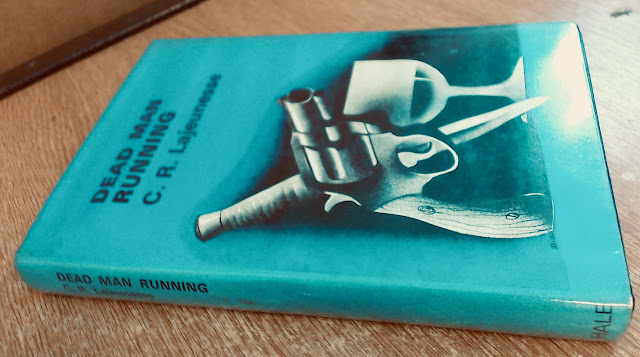Given that my undergraduate degree was in Philosophy, it may seem odd that this the first book of philosophy in the series. Many will say it is not a book of philosophy at all. That would explain why I gorged on Nick Land's The Thirst for Annihilation: Georges Bataille and Virulent Nihilism because it was the polar opposite to the guidebook on the syllabus, which we had to buy for an excruciating £13. Looking into Jonathan Dancy's Introduction to Contemporary Epistemology (I'm hesitant to call it reading) I knew philosophy wasn't for me.
Things were made more difficult because the associated literary modules suggested to me that I had no real interest in Literature either, apart from one anyway. Rereading the book thirty years on has been painfully instructive even if I still revel in the fevered departure from the po-faced poise of academic prose. As Nick Land says of critical distance: "it is remarkable how degraded a discourse can become when it is marked by the obsessive reiteration of the abstract ego, mixing arrogance with pallid humility."
There is not a single sentence [in this book] which is other than a gratuitousness and a confusion; a cry at least half lamed and smothered in irony. Each appeal that is made to the name ‘Bataille’ shudders between a pretension and a joke. Bataille. I know nothing about him. His obsessions disturb me, his ignorances numb me, I find his thought incomprehensible, the abrasion of his writing shears uselessly across my inarticulacy. In response I mumble, as a resistance to anxiety, maddening myself with words. Locked in a cell with my own hollow ravings…but at least it is not that…(and even now I lie)…
The echoes of Dostoevsky's underground man are unmistakable (and I wrote about other echoes of Dostoevsky's underground man in contemporary literature only recently). The pain comes from recognising the dilettantism of my reading then and how I missed the direction I could have taken much earlier had I followed the clues.
The heart of literature is the death of God, the violent absence of the good, and thus of everything that protects, consolidates, or guarantees the interests of the individual personality. The death of God is the ultimate transgression, the release of humanity from itself, back into the blind infernal extravagance of the sun.
The book also raises the issue of secondary literature. The distinction between genres is clear: there is literature and there are books about literature. But where is the border between one and the other? How does one cross it, or, perhaps instead, how does one not cross it?















